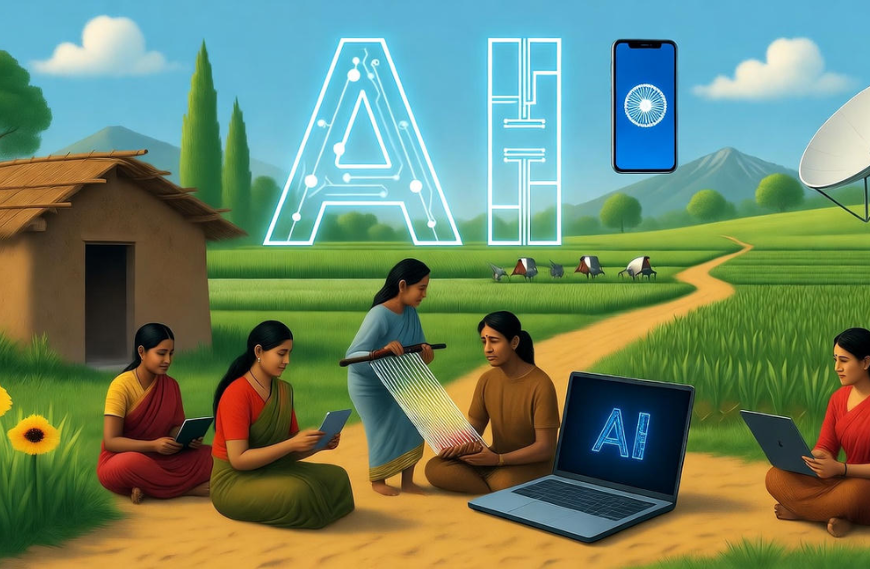In a significant shift from traditional urban-centric technological development, India’s rural and semi-urban areas are emerging as pivotal centers in the global artificial intelligence (AI) landscape. This transformation is not merely technological but also social, as it empowers local communities, creates new employment opportunities, and fosters inclusive growth. By moving beyond major cities, AI is reaching places where it can directly improve livelihoods and bridge economic gaps.
Decentralization of AI work
Historically, AI development and related work were concentrated in major metropolitan areas. However, advancements in broadband connectivity, affordable devices, and cloud infrastructure have enabled individuals in smaller towns and rural districts to contribute to AI initiatives. Tasks such as data annotation, AI model training, and fine-tuning systems can now be performed remotely, allowing these regions to participate in the global digital economy. This decentralization ensures that technological progress is not limited to cities but benefits a broader spectrum of society, reducing the urban-rural divide in digital skills and income opportunities.
Empowerment of women and youth
One of the most striking aspects of this AI revolution is the inclusion of women and young people in the workforce. For many, especially women, tech-enabled employment represents their first formal job and a consistent income. This development not only improves financial independence but also allows them to contribute to their communities without leaving their homes. For young individuals, it opens a path to acquire digital skills that are globally relevant. By enabling local employment, AI helps reduce migration pressures on cities and encourages rural development through skill building rather than reliance on traditional labor.
Leveraging linguistic and cultural diversity
India’s vast array of languages, dialects, and accents makes it an ideal environment for training AI systems that require nuanced understanding. From speech recognition to language processing, this diversity allows AI technologies to become more inclusive and accurate. The global demand for human-labeled data further strengthens India’s role as a critical hub for AI development, making the country indispensable in creating systems that can serve diverse populations worldwide.
India’s approach to AI highlights how technology can redistribute opportunities equitably. The true potential of AI lies not in replacing human labor but in augmenting human capabilities. By leveraging its rural workforce, linguistic diversity, and digital infrastructure, India is shaping a model where technology and social progress go hand in hand, ensuring the benefits of AI reach all segments of society.
Subscribe Deshwale on YouTube



